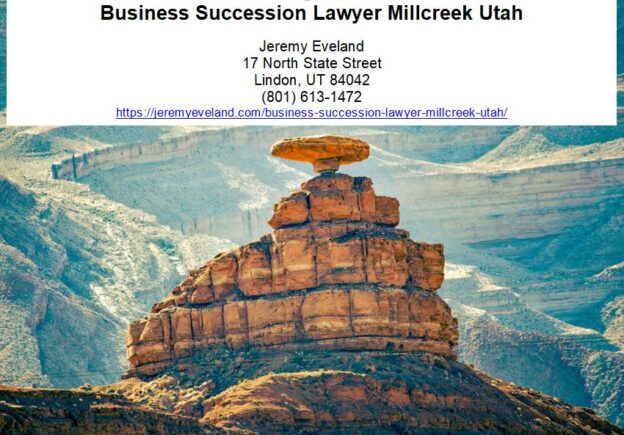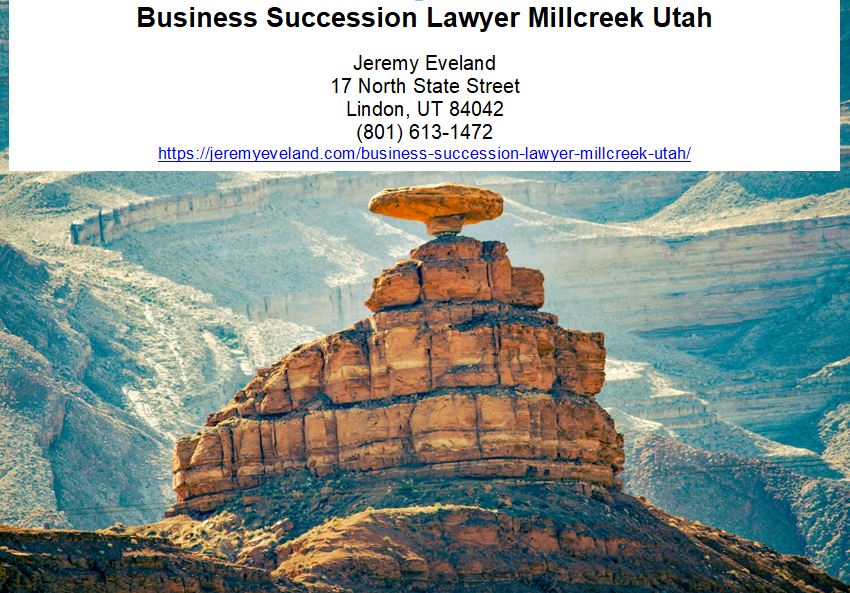If you’re looking to safeguard your hard-earned assets and provide for your family’s future, then you’ve come to the right place. In this article, we’ll be exploring the power and potential of Family Limited Partnerships (FLPs) as a legal asset protection tool. By creating an FLP, you can effectively shield your valuable property from potential creditors and ensure that your loved ones benefit from your wealth for generations to come. Join us as we delve into the intricacies of FLPs and discover the peace of mind they can provide.
What is a Family Limited Partnership?
Definition of a Family Limited Partnership
A Family Limited Partnership (FLP) is a legal entity that is formed by family members to manage and protect the family’s assets. It is a type of limited partnership where the general partners are typically the parents or older generation, and the limited partners are the children or younger generation. The FLP is controlled by the general partners, who make the decisions regarding the partnership’s investments and distributions. The limited partners have an ownership stake in the partnership, but they do not have control over the management of the assets.
Purpose of a Family Limited Partnership
The main purpose of a Family Limited Partnership is to provide asset protection and estate planning benefits to the family. By transferring assets to the partnership, the family can shield those assets from potential creditors and lawsuits. Additionally, the FLP allows for the smooth transfer of ownership and control of family assets to the younger generation, ensuring the continuity of the family’s wealth and business.
Key features of a Family Limited Partnership
There are several key features that distinguish a Family Limited Partnership from other types of legal entities. Firstly, the FLP allows for the separation of personal and business assets, providing protection for both. Secondly, the limited partners in the partnership have limited liability protection, which means that they are not personally liable for the partnership’s debts and liabilities. Thirdly, the partnership offers tax advantages, including gift and estate tax savings, income tax benefits, and generation-skipping transfer tax planning. Lastly, the FLP provides the general partners with control over the assets and decision-making power, ensuring that the family’s interests are protected and preserved.
Advantages of a Family Limited Partnership
Asset protection
One of the primary advantages of a Family Limited Partnership is its ability to provide asset protection. By transferring assets to the partnership, those assets are no longer owned directly by the individual family members. Instead, they are owned by the partnership, and therefore, are shielded from potential creditors and lawsuits. This can be particularly beneficial for families with significant wealth or valuable assets that may be at risk of being targeted by lawsuits or creditors.
Estate planning benefits
Family Limited Partnerships offer numerous estate planning benefits. By transferring assets to the partnership, the older generation can effectively reduce the value of their estates for estate tax purposes. This is because the value of the limited partnership interests, which the older generation retains, is significantly reduced due to the lack of control and marketability associated with those interests. Additionally, the partnership allows for flexibility in asset distribution upon death, ensuring that the family’s wealth is distributed according to the wishes of the deceased family members.
Tax advantages
Family Limited Partnerships provide several tax advantages for the family. Firstly, the partnership allows for gift and estate tax savings. By transferring assets to the partnership, the older generation can effectively remove those assets from their taxable estates, reducing the potential estate tax liability. Secondly, the partnership offers income tax benefits. The income generated by the partnership’s assets is typically taxed at the individual partners’ income tax rates, which can be lower than the rates for trusts or other types of entities. Lastly, the partnership can be used for generation-skipping transfer tax planning, allowing for the tax-efficient transfer of wealth to future generations while minimizing the tax burden.
Control over assets
With a Family Limited Partnership, the general partners have control over the assets and decision-making power. This is especially beneficial for families who want to retain control over their wealth and assets while transitioning ownership to the younger generation. The general partners can make decisions regarding the partnership’s investments, distributions, and overall management, ensuring that the family’s interests are protected and preserved.
Simplification of succession planning
Family Limited Partnerships simplify the process of succession planning for the family. By transferring assets to the partnership, the older generation can gradually transfer ownership and control to the younger generation over time. This provides a smooth transition of ownership, avoiding conflicts and disputes among family members. Additionally, the partnership allows for the preservation of the family business, ensuring its continuity and long-term success.
Asset Protection Strategies
Separation of personal and business assets
A key asset protection strategy offered by Family Limited Partnerships is the separation of personal and business assets. By transferring assets to the partnership, those assets are no longer owned directly by the individual family members. Instead, they are owned by the partnership, creating a legal separation between personal and business assets. This separation provides protection for both types of assets, as it makes it more difficult for creditors or lawsuits to reach the assets held within the partnership.
Limited liability protection
Family Limited Partnerships provide limited liability protection for the limited partners. Limited partners in the partnership are not personally liable for the partnership’s debts and liabilities. This means that in the event of a lawsuit or creditor claim, the limited partners’ personal assets are shielded from the potential financial impact. They are only at risk for the amount of their investment in the partnership.
Protection from creditors
Another asset protection strategy offered by Family Limited Partnerships is protection from creditors. By transferring assets to the partnership, those assets become the property of the partnership, rather than the individual family members. This makes it more difficult for creditors to access those assets, as they are no longer owned directly by the individual family members. This can be particularly beneficial in situations where the family members have significant liabilities or are at risk of being targeted by creditors.
Shielding against lawsuits
Family Limited Partnerships can also provide shielding against lawsuits. By holding assets within the partnership, those assets are protected from being targeted in lawsuits against individual family members. In the event of a lawsuit, the assets held within the partnership are generally not considered the individual family members’ property, making them more difficult for plaintiffs to access. This can be especially important for families with significant wealth or valuable assets that may be at risk of being targeted in lawsuits.
Creating a Family Limited Partnership
Identifying family members and roles
The first step in creating a Family Limited Partnership is to identify the family members who will be involved in the partnership and their roles within the partnership. The general partners are typically the parents or older generation, while the limited partners are the children or younger generation. It is important to consider the dynamics of the family and the individual strengths and skills of each family member when determining their roles within the partnership.
Drafting the partnership agreement
Once the family members and their roles have been identified, the partnership agreement must be drafted. The partnership agreement is a legal document that outlines the terms and conditions of the partnership, including the roles and responsibilities of each partner, how profits and losses will be allocated, and the process for distributing assets and making decisions. It is important to work with an experienced attorney to ensure that the partnership agreement is properly drafted and includes all necessary provisions to protect the family’s interests.
Transferring assets to the partnership
After the partnership agreement has been drafted and signed by all family members, the next step is to transfer assets to the partnership. This can include a wide range of assets, such as real estate, investments, business interests, and personal property. It is important to consult with an attorney and other professionals, such as accountants or appraisers, to properly value the assets and ensure that the transfer is done in compliance with state laws and regulations.
Valuation of assets
The valuation of assets is a critical step in the creation of a Family Limited Partnership. The valuation determines the fair market value of the assets being transferred to the partnership, which is important for tax and estate planning purposes. It is advisable to work with a qualified appraiser or valuation expert to ensure that the assets are properly valued and that the transfer is done in compliance with applicable laws and regulations.
Compliance with state laws
Creating a Family Limited Partnership requires compliance with state laws and regulations. Each state has its own requirements and procedures for forming and operating a partnership, so it is important to consult with an attorney who is familiar with the laws of the specific state. Compliance with state laws ensures that the partnership is legally valid, and that the family can enjoy the benefits and protections offered by the partnership structure.
Key Considerations in Estate Planning
Preservation of family wealth
A major consideration in estate planning is the preservation of family wealth. By creating a Family Limited Partnership, the family can effectively manage and protect their assets, ensuring that they are preserved for future generations. The partnership allows for the smooth transfer of ownership and control to the younger generation, while still providing the older generation with income and control over the assets during their lifetimes.
Minimization of estate taxes
Family Limited Partnerships offer estate planning benefits by minimizing estate taxes. By transferring assets to the partnership, the older generation can effectively reduce the value of their taxable estates. This is because the limited partnership interests, which the older generation retains, are valued at a discount due to the lack of control and marketability associated with those interests. This discount reduces the potential estate tax liability, allowing more of the family’s wealth to be passed on to future generations.
Flexibility in asset distribution
Another key consideration in estate planning is flexibility in asset distribution. Family Limited Partnerships allow for flexibility in how the family’s assets are distributed upon death. The partnership agreement can specify how the assets will be divided among the limited partners, taking into account their individual needs and circumstances. This flexibility ensures that the family’s wealth is distributed according to the wishes of the deceased family members and helps to avoid disputes or conflicts among family members.
Avoidance of probate
Family Limited Partnerships can help to avoid the probate process, which is the legal process of administering a deceased person’s estate. When assets are held within the partnership, they are not considered part of the individual family members’ estates. As a result, those assets are not subject to probate and can be transferred to the heirs outside of the probate process. Avoiding probate can save time and money for the family and allows for a more efficient transfer of assets to the next generation.
Tax Advantages of a Family Limited Partnership
Gift and estate tax savings
Family Limited Partnerships offer gift and estate tax savings. By transferring assets to the partnership, the older generation can effectively remove those assets from their taxable estates. This reduces the potential estate tax liability, allowing more of the family’s wealth to be passed on to future generations. Additionally, the limited partnership interests, which the older generation retains, are valued at a discount due to the lack of control and marketability associated with those interests. This discount further reduces the taxable value of the older generation’s estates.
Income tax benefits
Family Limited Partnerships provide income tax benefits for the family. The income generated by the partnership’s assets is typically taxed at the individual partners’ income tax rates. This can be advantageous, as individual income tax rates are often lower than the rates for trusts or other types of entities. By minimizing the tax burden on the partnership’s income, the family can retain more of their earnings and maximize the growth and preservation of their wealth.
Generation-skipping transfer tax planning
Family Limited Partnerships can be used for generation-skipping transfer tax planning. The generation-skipping transfer tax is a federal tax that applies to transfers of wealth to individuals who are more than one generation younger than the transferor, such as grandchildren or great-grandchildren. By transferring assets to the partnership and making gifts of limited partnership interests to the younger generation, the family can effectively skip a generation for tax purposes. This can result in significant tax savings, as it allows for the tax-efficient transfer of wealth to future generations.
Step-up in basis
Another tax advantage of Family Limited Partnerships is the step-up in basis. When a partner passes away, their individual basis in the partnership interests is adjusted to the fair market value at the time of death. This step-up in basis can help to minimize capital gains taxes when the partnership assets are eventually sold. It allows the heirs to receive the assets at a higher basis, reducing the potential capital gains tax liability upon sale.
Control over Family Assets
Retaining majority control
With a Family Limited Partnership, the general partners retain majority control over the family assets. This is important for families who want to maintain decision-making power and protect their interests. The general partners have the authority to make decisions regarding the partnership’s investments, distributions, and overall management. This ensures that the family’s goals and priorities are upheld and that the assets are managed in a way that aligns with the family’s values and objectives.
Maintaining decision-making power
Family Limited Partnerships allow for the maintenance of decision-making power within the family. The general partners have the authority to make decisions regarding the partnership’s investments, distributions, and other matters. This can be especially important for families who want to retain control over their wealth and assets while transitioning ownership to the younger generation. By maintaining decision-making power, the family can ensure that their interests are protected and that the assets are managed in a way that aligns with their long-term goals and objectives.
Restricting access to assets
Family Limited Partnerships provide a mechanism for restricting access to family assets. The limited partners in the partnership have an ownership stake in the assets, but they do not have control over the management of the assets. This can be beneficial for families who want to ensure that the assets are protected and preserved for future generations. By restricting access to the assets, the family can prevent individual family members from making impulsive or unwise financial decisions that could jeopardize the family’s wealth.
Overcoming the pitfalls of joint ownership
Family Limited Partnerships offer a solution to the pitfalls of joint ownership. When assets are owned jointly by multiple family members, it can lead to conflicts, disputes, and difficulties in managing and protecting the assets. With a Family Limited Partnership, the assets are owned by the partnership, rather than individually by the family members. This allows for centralized control and management of the assets, overcoming the challenges associated with joint ownership. It also provides a clear structure and framework for decision-making and asset protection.
Succession Planning and Business Continuity
Smooth transfer of ownership
One of the key benefits of a Family Limited Partnership is the smooth transfer of ownership. The partnership structure allows for the gradual transfer of ownership and control to the younger generation while providing the older generation with income and control over the assets during their lifetimes. This enables the family to ensure the continuity of their business and wealth, while also allowing the younger generation to gain experience and knowledge from the older generation.
Avoidance of conflicts among family members
Succession planning in a Family Limited Partnership can help to avoid conflicts among family members. By clearly defining the roles and responsibilities of each family member within the partnership agreement, and by establishing a process for decision-making and asset distribution, the family can minimize the potential for disputes and conflicts. This allows for a smoother transition of ownership and control and creates a framework for cooperation and shared goals among family members.
Preservation of family business
Family Limited Partnerships are particularly beneficial for the preservation of family businesses. By transferring the business assets to the partnership, the family can ensure that the business continues to operate and thrive even after the retirement or death of the older generation. The partnership provides a structure for the management and control of the business, while also allowing for the gradual transfer of ownership to the younger generation. This ensures the long-term success and continuity of the family business.
Transitioning to the next generation
Succession planning in a Family Limited Partnership allows for a smooth transition to the next generation. The partnership structure allows the younger generation to gradually take on more responsibility and control over the assets and decision-making. This transition can be done over time, ensuring that the younger generation is adequately prepared and equipped to manage and protect the family’s wealth. It also provides an opportunity for the older generation to pass on their knowledge, values, and expertise to the next generation, ensuring the continued success of the family and its assets.
Protection against Creditors and Lawsuits
Separation of personal and business liabilities
One of the key advantages of a Family Limited Partnership is the separation of personal and business liabilities. By transferring assets to the partnership, those assets become separate from the individual family members’ personal assets. This means that if a family member faces personal liability or is targeted in a lawsuit, the assets held within the partnership are generally not at risk. This separation provides an additional layer of protection for the family’s wealth and helps to shield it from potential creditors and legal claims.
Limited liability protection
Family Limited Partnerships provide limited liability protection for the limited partners. Limited partners are not personally liable for the partnership’s debts and liabilities. This means that in the event of a lawsuit or creditor claim, the limited partners’ personal assets are shielded from the potential financial impact. They are only at risk for the amount of their investment in the partnership. This limited liability protection is an attractive feature for families who want to protect their personal assets from potential legal claims or creditor actions.
Asset shielding through partnerships
Family Limited Partnerships offer asset shielding through the partnership structure. By holding assets within the partnership, those assets are protected from being targeted in lawsuits or creditor claims against individual family members. The assets held within the partnership are generally not considered the personal property of the individual family members, making them more difficult for plaintiffs or creditors to access. This shielding mechanism helps to preserve the family’s wealth and assets, ensuring their long-term protection and availability for future generations.
Strategies for preserving wealth
Family Limited Partnerships provide strategies for preserving wealth. By transferring assets to the partnership, the family can protect those assets from potential creditors, lawsuits, and other risks. This preservation of wealth ensures that the family’s assets are available for the current and future generations, allowing them to enjoy the benefits and advantages of the family’s hard work and success. By implementing asset protection strategies through the partnership, the family can minimize potential financial losses and maintain the value and integrity of their wealth.
Working with a Family Limited Partnership Attorney
Identifying your asset protection goals
When working with a Family Limited Partnership attorney, the first step is to identify your asset protection goals. Each family has unique needs and objectives when it comes to asset protection, and it is important to clearly define these goals at the outset of the process. By understanding your specific asset protection needs, the attorney can tailor the partnership agreement and other legal documents to ensure that they meet your objectives and provide the necessary protection for your family’s assets.
Determining the structure of the partnership
Once the asset protection goals have been identified, the attorney can help determine the appropriate structure for the Family Limited Partnership. This includes determining who will be the general partners and limited partners, as well as the roles and responsibilities of each partner. The attorney can also help determine the allocation of profits and losses, as well as the decision-making process within the partnership. By understanding the family’s dynamics and objectives, the attorney can create a structure that facilitates the achievement of the family’s asset protection and wealth preservation goals.
Drafting the partnership agreement
The partnership agreement is a critical document in the creation of a Family Limited Partnership. It outlines the terms and conditions of the partnership, including the roles and responsibilities of each partner, how profits and losses will be allocated, and the process for making decisions and distributing assets. The attorney will draft the partnership agreement based on the family’s asset protection goals and the legal requirements of the state. It is important to work closely with the attorney during this process to ensure that all necessary provisions are included and that the agreement accurately reflects the family’s wishes.
Transferring assets and complying with regulations
Once the partnership agreement has been drafted and signed, the attorney can assist with the process of transferring assets to the partnership. This may involve working with other professionals, such as accountants or appraisers, to properly value the assets and ensure compliance with state laws and regulations. The attorney will provide guidance on the legal requirements for transferring assets and the necessary documentation to complete the transfer. It is important to work closely with the attorney to ensure that the transfer process is done correctly and in compliance with all applicable laws and regulations.
Ensuring ongoing compliance and administration
Once the Family Limited Partnership has been established, it is important to ensure ongoing compliance and administration. This includes regularly reviewing and updating the partnership agreement as necessary, filing required tax returns and reports, and complying with state laws and regulations. The attorney can provide guidance on the ongoing legal requirements for the partnership and assist with any necessary changes or updates. By working with the attorney on an ongoing basis, the family can ensure that the partnership continues to provide the desired asset protection benefits and that all legal obligations are met.













